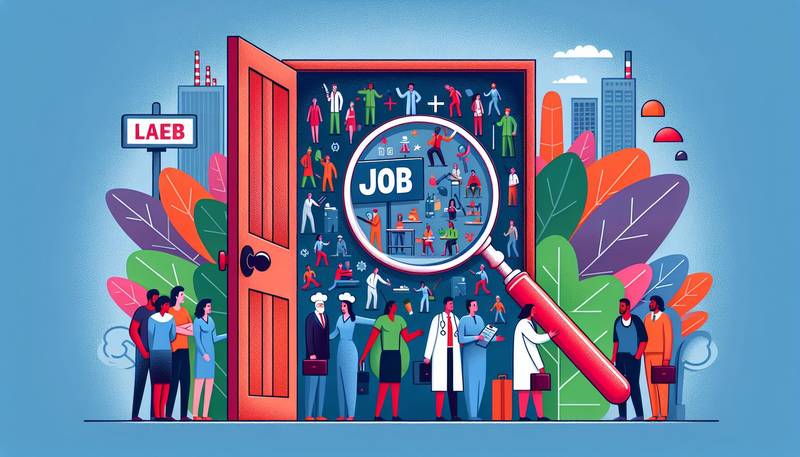The Future of Job Searching: Trends to Watch
In this article, we will explore some of the key trends shaping the future of job searching and provide insights into what job seekers can expect in the coming years.
Artificial Intelligence and Machine Learning in Job Searching
Artificial intelligence (AI) and machine learning technologies are playing an increasingly important role in job searching. Job boards and recruitment platforms are leveraging these technologies to provide more personalized job recommendations to users. AI algorithms can analyze a candidate's skills, experience, and preferences to suggest relevant job opportunities, making the job search process more efficient and effective.
Furthermore, AI-powered tools are being used to screen resumes, conduct initial interviews, and assess candidates' fit for specific roles. This automation of the recruitment process not only saves time for hiring managers but also helps job seekers by matching them with positions that align with their qualifications and career goals.
Remote Work Opportunities
The COVID-19 pandemic has accelerated the shift towards remote work, and this trend is likely to continue in the future. As more companies embrace remote work policies, job seekers can expect to see an increase in opportunities for remote and flexible work arrangements. This opens up new possibilities for individuals who are looking to work from home or explore jobs outside of their local area.
Job search platforms are adapting to this trend by featuring filters that allow users to search specifically for remote job listings. Additionally, employers are becoming more open to hiring remote workers, which broadens the pool of opportunities available to job seekers regardless of their geographic location.
Gig Economy and Freelancing
The gig economy has been on the rise in recent years, with a growing number of workers turning to freelancing and short-term contracts as a career choice. Job search platforms are evolving to cater to this trend by offering specialized services for freelancers and independent contractors. These platforms provide a marketplace where freelancers can showcase their skills, find clients, and secure project-based work.
For job seekers interested in freelancing, these platforms offer a convenient way to connect with potential clients and build a portfolio of work. The gig economy provides flexibility and autonomy, allowing individuals to take on projects that align with their interests and expertise.
Skills-based Job Matching
Traditional job searching often relies on matching candidates with job titles or specific industries. However, the future of job searching is moving towards a more skills-based approach. Job search platforms are increasingly focusing on skills and competencies rather than job titles, allowing job seekers to showcase their capabilities and potential to employers.
Skills-based job matching enables employers to identify candidates with the right skill sets for their roles, regardless of their previous job titles or industries. This approach benefits job seekers by highlighting their transferable skills and qualifications, increasing their chances of landing a job that matches their abilities and interests.
Networking and Personal Branding
In today's competitive job market, networking and personal branding have become essential components of a successful job search. Job seekers are increasingly turning to social media platforms and professional networking sites to connect with industry professionals, build relationships, and showcase their expertise.
Platforms like LinkedIn provide a space for job seekers to create a professional profile, share insights and updates, and engage with potential employers. Building a strong personal brand and networking online can help job seekers stand out from the crowd and attract opportunities that may not be advertised through traditional channels.
Conclusion
The future of job searching is full of exciting possibilities, driven by technological innovation, shifting workforce dynamics, and changing employer needs. Job seekers can expect to see increased reliance on AI and machine learning, a rise in remote work opportunities, the growth of the gig economy, a shift towards skills-based job matching, and an emphasis on networking and personal branding.
By staying informed about these trends and adapting to the changing job market landscape, job seekers can position themselves for success and take advantage of the diverse range of opportunities available in the evolving job market. Whether you are a seasoned professional or a recent graduate, embracing these trends can help you navigate the job search process with confidence and achieve your career goals in the future.










